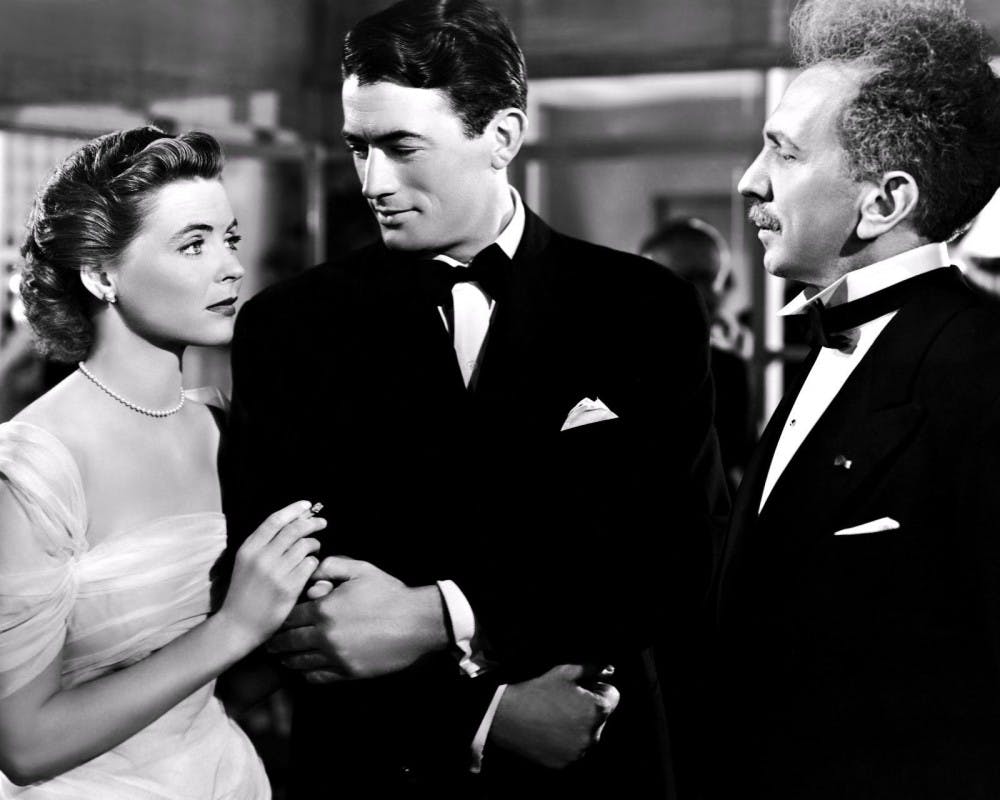After discovering not too long ago a soft spot in my heart for old cinema, I found myself equipped with a free library card and an idle summer itinerary, of which I took full advantage. This July I watched dozens of films: comedy, drama, Technicolor, black-and-white, musical, Western, and more.
Most Golden Age films I watched remained relatively far from modern reality in terms of screenplay, plot, and dialect, yet I appreciated the escape (albeit not the sexism). Perhaps the most unexpected consequence of my silver screen spree, however, was a counterexample to this pattern: my discovery of one particular film whose nuanced treatment of ethnic discrimination still rung true today.
Hint: it’s not the movie your English teacher probably forced you, glassy-eyed and on the verge of slumber, to watch at some point in your formative years. This film saw Gregory Peck star as a single father struggling to grapple with racial disparities and their effect on his relationships with family.
“Gentleman’s Agreement” (1947), directed by Elia Kazan, predated “To Kill a Mockingbird” by some 15 years, yet, provides a more comprehensive introduction to the concept of systemic racism than any other film — contemporary or otherwise — that I have seen. To describe Gregory Peck’s character as “woke” would be quite apt, to say the least.
The protagonist, Phil Green (portrayed by Peck,) is a magazine reporter who pretends to be Jewish and documents his experiences in a series. Matters become more complicated when, by experiencing discrimination firsthand, Phil garners a deeper understanding of anti-Semitism, contrary to that of his fiancée, Kathy (Dorothy McGuire).
The scenes in “Gentleman’s Agreement” clarify my own understanding as to why racial discrimination pervades so many different aspects of my own life.
As a half-Asian person, my race is not recognizable. When they first see me, some people assume I am white, while others assume I am Asian. Thus, I lie in an awkward position — alongside many other multiracial people — in which I am unaware what a given person knows about my race.
The film devotes some attention to this personal topic. Professor Lieberman, a character in “Gentleman’s Agreement” bearing an uncanny resemblance to a certain iconic frowzy-haired Princetonian, finds himself in a similar position with regards to his religious identity to mine with my racial identity.
An important consequence of ambiguity — racial or religious — is the ability to decide one’s identity in official settings, such as in applications to jobs or colleges. Professor Lieberman entertained pretending he was Christian, so as to permanently escape anti-Semitism, but found that his pride in his Jewish identity overpowered any inclination to mitigate discrimination. I, likewise, find my Chinese heritage so inseparable to my identity that I am unable to identify myself as simply white in any written survey.
In fact, I experienced an instance of this dilemma applying to Princeton. Although I had no reason to believe Princeton systematically discriminated against Asian-American applicants, some harrowing admissions statistics, as well as the now overturned district ruling on Harvard’s discrimination lawsuit, loomed over each step of my college process. While circling “white” on my application may have increased my chances of acceptance, it also would have erased my ever-important ancestry. I opted for “Asian” instead, prioritizing my cultural pride over my future chances, just as Professor Lieberman did in “Gentleman’s Agreement.” Fortunately for me, I got my cake and ate it too, at least that time.
Application denials based on identity can, however, affect lives most notably in housing. The film articulated this clearly by portraying Dave, a Jewish character who receives a high-paying job offer in New York City, unable to find a place to live in New York or in Connecticut due to the titular gentleman’s agreements that restricted renting homes to Jewish tenants. Anti-Semitism here literally restricts Dave’s freedom to live.
I live near Baltimore, where so many particularly African-American families find themselves stuck in neighborhoods lacking adequate schools, hospitals, grocery stores, and wages. A history of hundreds of years of housing discrimination still renders moving difficult, especially for racial minorities. Where we live, though, affects all aspects of our lives: our jobs, our education, our medical care, etc.

In sum, modern notions of identity that affect me on a personal basis, such as the nuanced decision-making consequence of passing societally as white and the city-shaping legacies of race-based housing discrimination, are not modern at all; rather, they have been well-documented. at least since 1947.
“Gentleman’s Agreement” covers many other avatars of racial discrimination, such as micro-aggressions, subconscious bias, privilege, and the visceral discomfort so many of us face about race. The film did not go unnoticed either, obtaining the Academy Award for Best Picture.
Despite the apparent futility of fighting the omnipotent machine of racial discrimination inhabiting practically all aspects of modern society, “Gentleman’s Agreement” preaches hope. Because inaction abets discrimination, any direct confrontation of intentional or — as so much bias is — subconscious racial discrimination helps our society. “I’ve come to see that lots of nice people who aren’t [anti-Semites], people who despise it and detest it and deplore it and protest their own innocence help it [anti-Semitism] along and then wonder why it grows,” Phil states.
Such monologue, with Peck’s captivating oration, exemplifies the appeal of “Gentleman’s Agreement” — the film explicates concepts in their full complexity, while still remaining exciting to watch. From “Gentleman’s Agreement,” we receive two great benefits: a lesson in pressing societal issues and a brilliant exhibit of cinematic art.
Oliver Thakar is a first-year from Owings Mills, Maryland. He can be reached at othakar@princeton.edu.








